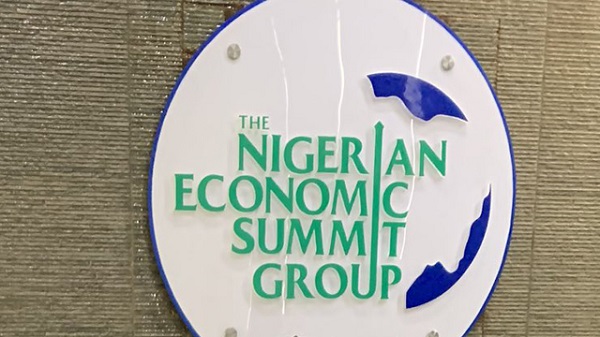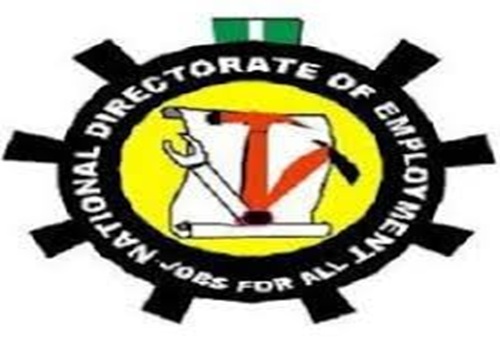
The Nigeria Economic Summit Group (NESG) has called for second wave structural and transformative reforms to move the economy from crisis management to long-term growth.
NESG Chairman, Niyi Yusuf disclosed this yesterday at the World Press Conference organized by the NESG in collaboration with the Federal Ministry of Budget and Economic Planning in Lagos. He explained that the stability being enjoyed in the economy is not the destination, but the starting point for the current administration.
“The reforms of 2023 and 2024 gave us breathing space, but they will not, on their own, deliver the Nigeria we envision by 2030. What is required now is a second wave of reforms—structural, deliberate, and transformative—that move us from crisis management to long-term nation building.
The new Tax Acts that will come into effect in 2026 are a good start and this is why The Reform Imperative is not a choice, but a necessity,” Yusuf stated.
Speaking ahead of the 31st Nigerian Economic Summit (NES#31), scheduled to hold from 6th to 8th October 2025 at the Transcorp Hilton Hotel, Abuja with theme: “The Reform Imperative: Building a Prosperous and Inclusive Nigeria by 2030”, he explained that over the past two years, Nigeria has embarked on bold reforms, notably the removal of fuel subsidies and the harmonisation of foreign exchange.
“These were not easy decisions. They demanded courage from government, resilience from citizens, and sacrifice from businesses. But as global institutions such as the World Bank have already confirmed, these reforms have begun to yield results: narrowing fiscal deficits, injecting a measure of stability into our economy, and creating the conditions for future growth,” he said.
According to Yusuf, the NES#31 is not just another conference. “It is a platform to ask the difficult questions, to hold ourselves accountable, and to chart the practical pathways that can turn reforms into results. We will gather government leaders, private sector champions, development partners, and civil society voices. Together, we will shape the policies and partnerships that can transform this moment of fragile stability into a decade of sustainable prosperity,” he said.
He said that the rate at which the naira exchanges against global currencies, is not as important as the stability of the local currency. He said that the naira has remained stable over a long period, because of improved dollar liquidity. He said the stability of the naira makes it easier for businesses to plan, and support government’s fight against inflation.
Also speaking, Minister for Budget and Economic Planning, Abubakar Bagudu highlighted the alignment between NES#31 and the government’s reform agenda.
Bagudu, who was represented by Dr. Felix Okonkwo, Director of Macroeconomic Analysis at the Federal Ministry of Budget and Economic Planning, explained that recent policies have begun to improve Nigeria’s fiscal position, debt sustainability, and investor confidence, describing these gains as “signals that Nigeria has chosen the right path.”
He further noted that reforms must be sustained as a process, not an event, and stressed the importance of targeted programmes in agriculture, education, health, and social protection to ensure that vulnerable populations are not left behind.
Mr. Okonkwo further highlighted that the Renewed Hope Ward Development Programme, recently unveiled by President Bola Ahmed Tinubu, marks a significant paradigm shift in Nigeria’s strategy for economic development and poverty alleviation.
This ambitious and people-centered initiative is designed to uplift more than 10 million economically active citizens, ensuring that ordinary Nigerians—particularly those at the grassroots—directly feel the positive impact of the administration’s ongoing economic reforms. By targeting all 8,809 wards across the 774 local government areas of the federation, the programme guarantees inclusivity, leaving no community behind in the quest for shared prosperity and sustainable growth.
He further explained that NES#31 will focus on five core sub-themes—driving industrialisation-led growth, building infrastructure for competitiveness, advancing inclusion for shared growth, strengthening institutions for sustainable impact, and unlocking investment amid global trade shifts. These, he said, mirror government’s medium- to long-term objectives of sustainable development, poverty reduction, and inclusive prosperity.
Speaking on the wider impact of the Summits, Dr. Tayo Aduloju, CEO of the NESG, reiterated that the Nigerian Economic Summits have consistently proven the power of evidence-based dialogue to redirect the course of the nation. From shaping reforms that transformed the pension and agriculture sectors, to providing blueprints during economic recessions, the Summits have been instrumental in fostering policy innovation, strengthening public-private partnerships, and deepening collaborative nation-building.
According to him, NES#31 represents a defining moment to consolidate reforms, address the constraints to investment, production and productivity, and set Nigeria firmly on the path to achieving the aspirations of Nigeria Agenda 2050. “As we enter the Agenda 2050 era, NES#31 must help us sustain this momentum and translate resilience into renewal,” he said.
The NESG therefore called on all stakeholders—government, private sector, development partners, and civil society—to actively participate in NES#31 and contribute to building the Nigeria of 2030: resilient, productive, inclusive, and globally competitive.



